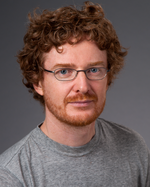First Name
Ludovic
Last Name
Van Waerbeke
Position
Professor
Office Room
Hennings 328
Tel (Office)
(604) 822-5515
Email
waerbeke@physics.ubc.ca
Research Groups
Students Wanted
N/A
Research Website
Additional Links
Bachelor's Degree
University of Orsay, Paris XI, Physics, 1991
Master's Degree
University of Orsay, Paris XI, Theoretical Physics, 1992
Doctoral Degree
University of Orsay, Paris XI, Astrophysics/Cosmology, 1997
Employment History
- 2014- Professor, Physics and Astronomy, UBC
- 2009-2014 Associate Professor, Physics and Astronomy, UBC
- 2004-2009 Assistant Professor, Physics and Astronomy, UBC
- 2002-2004 Chargé de Recherche CR1, CNRS, IAP, Paris, France (tenure)
- 2000-2002 Chargé de Recherche CR1, CNRS, IAP, Paris, France (tenure track)
- 1998-2000 Postdoctoral Fellow, CITA, Toronto, Canada
- 1997-1998 Postdoctoral Fellow, Max-Planck-Institut, Garching, Germany
Awards
- 2015 Friedrich Wilhelm Bessel Research Award from the Humboldt Foundation
- 2010 Peter Walls Institute for Advanced Studies Early Career Scholar award
- 2007-2012 Senior Fellow, Canadian Institute for Advanced Research Cosmology & Gravity program
- 1993-1996 PhD fellowship award from the french ministry of research and education
Research Area
Astronomy & Astrophysics
Research Field
Cosmology
Research Topics
dark matter; dark energy; galaxy formation; structure formation; gravitational lensing
Abstract
The study of the universe is stumbling upon two mysteries: it is made of 5% of normal matter, 20% of an unknown type of matter, dark matter and for 75% of a puzzling form if energy, dark energy. Normal matter can be seen with traditional observational techniques that capture light at all possible wavelength with all kinds of telescopes. Dark matter can be detected indirectly with the gravitational lensing effect. The effect of dark energy can only be measured on the expansion rate of the Universe. Using a combination of observations of normal and dark matter and dark energy, my research is a quest for a better understanding of the Universe and its fundamental laws, the large scale structures, galaxy clusters and galaxy formation.
Selected Publications
